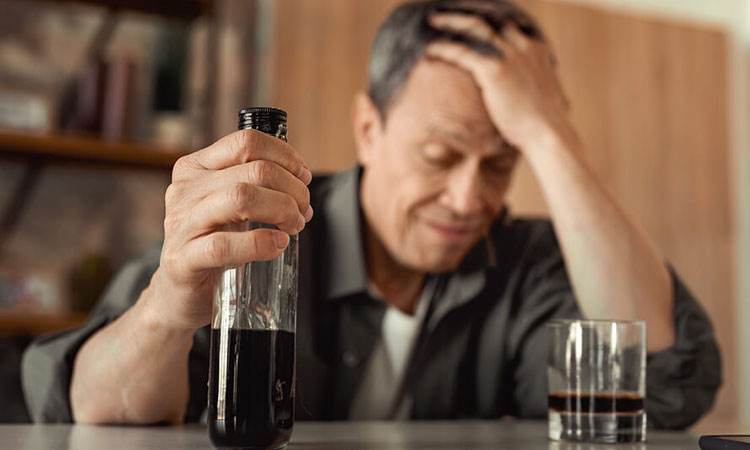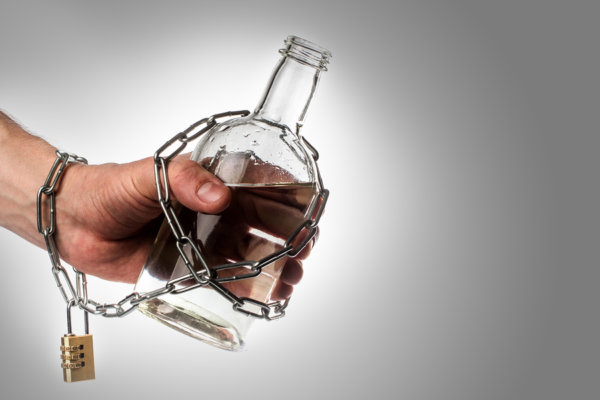
Chronic Alcohol Abuse: Subtypes and Symptoms – To help others obtain a better understanding of alcoholism, experts at the National Institute on Alcoholism and Alcohol Abuse (NIAAA) have identified five different subtypes of alcoholics. These include the following:
- Young adult subtype
- Young antisocial subtype
- Functional subtype
- Intermediate familial subtype
- Chronic severe subtype
Chronic Alcoholism Statistics
Chronic alcohol abuse, also known as the chronic severe subtype, is the rarest but most potentially devastating form of alcoholism. It represents more than 9% of alcoholics who are an average of 38 years of age. These individuals began drinking early in life (around 16) and later developed an addiction at an average age of 29. The majority are men (nearly two-thirds or 65%).
Tragically, this group has the highest drinking rates and consume alcohol about 247 days per year on average. They also engage in binge drinking on 69% of these days, during which time they may consume as many as 15 drinks.
Chronic alcoholics tend to have the highest rate of divorce, and less than 29% have ever been married. Only about 9% have a college degree, and they also have the highest rate of unemployment. Less than half (43%) are employed full-time.
They are also the most likely to suffer from mental health problems such as the following:
- Depression (55%)
- Antisocial personality disorder (47%)
- Bipolar disorder (34%)
- Social phobia (26%)
- Dysthymia (persistent depressive disorder) (25%)
- Generalized anxiety disorder (24%)
- Panic disorder (17%)
Chronic alcoholics also tend to engage in other substance use, including cigarette smoking and using marijuana, opioids, or stimulants. They commonly encounter the most enduring, far-reaching symptoms and effects, such as the following:
- The highest rate of emergency room visits related to excessive drinking.
- 94% consume larger amounts for a longer period than initially intended.
- 92% continue to drink despite incurring problems related to alcohol use, such as strained
- relationships or drunk driving convictions.
- 88% experience withdrawal symptoms during breaks from drinking.
- 83% have repeatedly tried to reduce the amount they drink.
- 64% spend considerable time recovering from drinking.
- About two-thirds (66%) have previously sought professional help for their alcoholism.
About Chronic Alcohol Abuse

A person suffering from chronic alcohol abuse is probably close to what the average person pictures when the term “alcoholic” is used. Although, as noted, this designation only accounts for about 9% of the U.S. alcohol-dependent population.
A chronic severe alcoholic probably started drinking and struggling with issues related to alcohol use at a young age and is now currently middle-aged. This subtype also has antisocial personality disorder at a disproportionately high rate and is more likely to encounter legal troubles.
Chronic severe alcoholics also experience other psychiatric disorders more often than other subtypes, including depression, bipolar disorder, and anxiety disorders. Nearly 80% of chronic severe alcoholics have a familial tie to alcoholism, meaning that an immediate family member, such as a parent or sibling, once experienced or currently suffers from alcoholism.
Often, people who are chronic alcoholics encounter adverse life consequences caused by their drinking, such as homelessness, unemployment, relationship conflicts, legal issues, and health problems. They also experience behavioral, social, and emotional problems that make them more likely to seek out professional help.
In fact, these individuals are the most prevalent type of alcoholic in treatment programs. About two-thirds of chronic severe alcoholics seek out help for their drinking problem.
Are You a Chronic Alcoholic?
If you or someone you know can answer yes to a majority of the following questions, chronic alcoholism is likely present:
1. Are you middle-aged, and began drinking and engaging in problematic habits associated with drinking early in life?
2. Were you raised in a family environment where a close family member was an alcoholic?
3. Do you find it challenging to maintain employment, a home, or relationships?
4. Have you had legal issues related to alcohol use and engaged in criminal behavior?
5. Have you been diagnosed with antisocial personality disorder or other psychiatric conditions, such as depression, anxiety disorder, or bipolar disorder?
6. Do you also use tobacco and marijuana, or engage in the misuse of prescription drugs or the abuse of illegal drugs such as cocaine?
7. Have you already tried to get help for your drinking and/or at some time already participated in a treatment program?
Treatment for Alcoholism
Chronic, severe alcoholism is a devastating disease that can emotionally, physically, and socially cripple those who suffer, as well as significantly affect their loved ones. Seeking treatment for alcohol abuse is the first step toward a new, more satisfying life.
Recovery By The Sea offers an integrated, evidence-based approach to alcoholism that includes essential therapeutic services, such as psychotherapy, individual, group, and family counseling, group support, aftercare planning, and more.
Our center employs compassionate medical professionals who specialize in addiction and deliver services with care and expertise. We provide clients with the tools and support they need to achieve abstinence, prevent relapse, and begin to experience long-lasting wellness and sobriety.
You can restore sanity and harmony to your life. Call us today to find out how we can help!